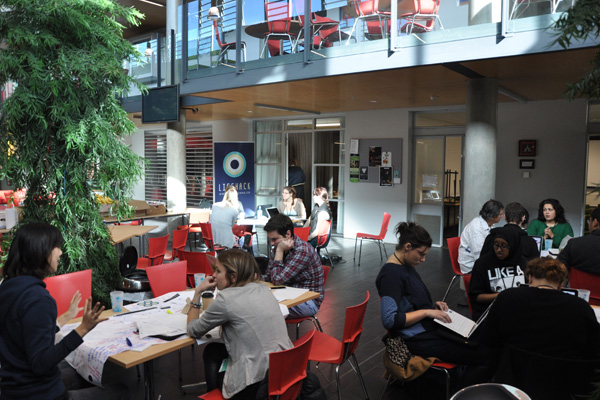Apps to make sad kids ‘appy
In recent years, New Zealand’s male and female youth suicide rates have topped OECD league tables. Lifehack’s founder Jason Armishaw said that when the MSD wanted to use mental health funds for “another awareness-raising conference,” he argued for a “bottom-up” approach. Lifehack enlisted young people, including students, as designers of technological solutions to this serious social problem.
After 48 hours of brainstorming, the six teams had each designed and in some cases produced a website or application to improve youth mental health. They then pitched their ideas to a high school student, a teacher, and a web developer at the Hunter Centre on Sunday evening.
University of Otago Vice-Chancellor Harlene Hayne was pleased with how the students had spent their weekend, but urged them to test their designs. Speaking after the presentations had been given, she expressed her concern that many youth programmes were ineffective, but were still implemented because no one bothered to check if they worked.
“Globlet,” an animated pet to which children could type messages about their issues, particularly impressed the judges and audience. “Upside,” a website hosting videos for youths to watch when they were feeling sad or lonely also received high marks, as did “Trash It,” a website and app where users write their feelings and then throw them away, or share them anonymously. These winning teams will each receive $2000 to produce a video for the national round of the competition in May, where the winners will have their designs put into production.
Asked if at-risk youth were likely to have access to personal smartphones, local coordinator Thomas Mitchell said that while socioeconomic status was “a factor” in depression, tablet computers were “getting cheaper all the time.” The teams were also optimistic about the potential of their programmes to break down stigmas and improve youth mental health. Josie Adams, one of Globlet’s inventors, suggested that Globlet could be the next John Kirwan. “Or,” she countered, “the next Clippy.”








